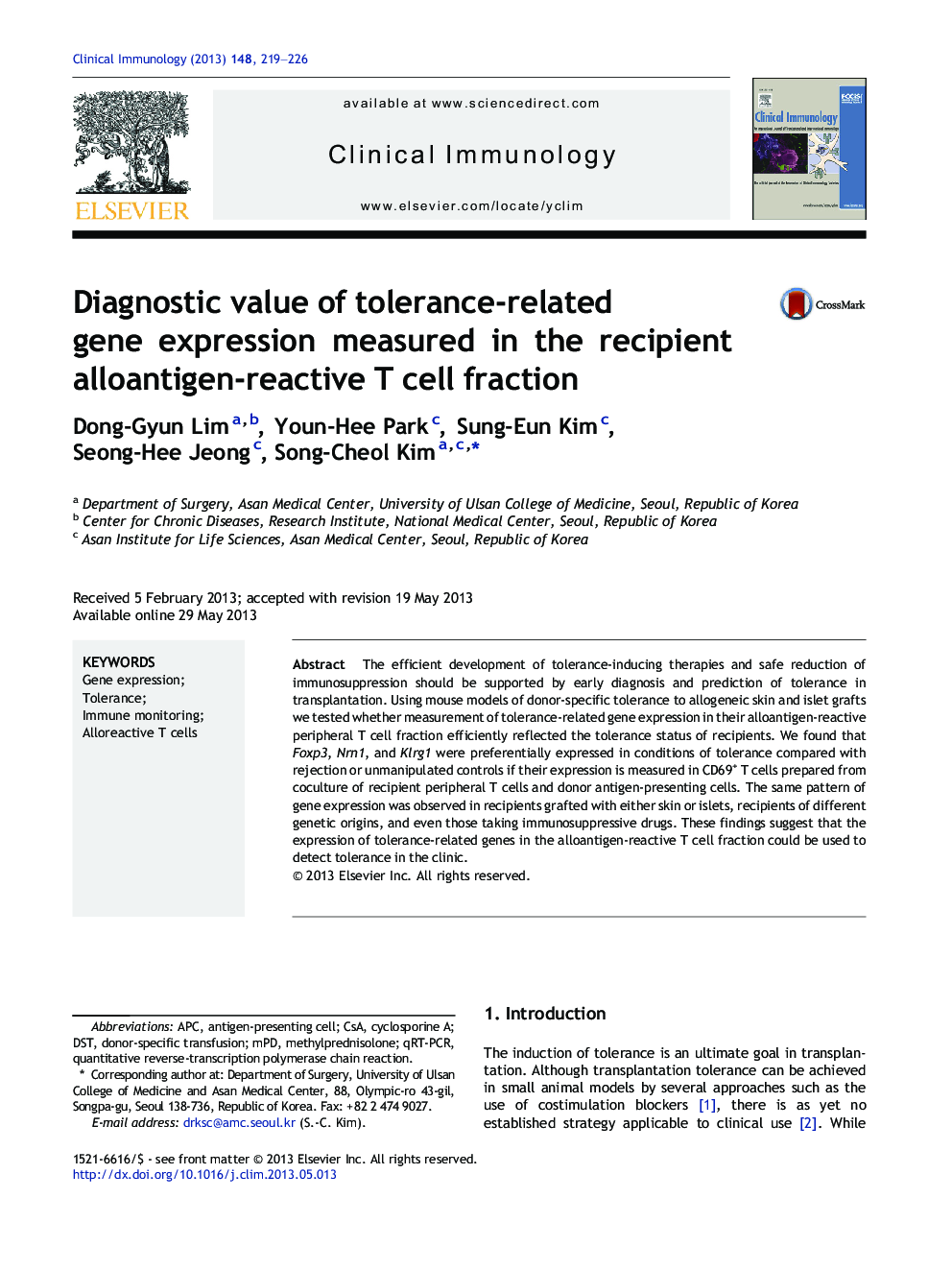| Article ID | Journal | Published Year | Pages | File Type |
|---|---|---|---|---|
| 6087711 | Clinical Immunology | 2013 | 8 Pages |
â¢Alloreactive T cells were enriched in CD69+ T cell fraction after allostimulation.â¢Gene expression was measured in alloantigen-reactive peripheral T cell fraction.â¢Foxp3, Nrn1 and Klrg1 were preferentially expressed in tolerant recipients.â¢Tolerance-related gene expression could be used to detect tolerance in the clinic.
The efficient development of tolerance-inducing therapies and safe reduction of immunosuppression should be supported by early diagnosis and prediction of tolerance in transplantation. Using mouse models of donor-specific tolerance to allogeneic skin and islet grafts we tested whether measurement of tolerance-related gene expression in their alloantigen-reactive peripheral T cell fraction efficiently reflected the tolerance status of recipients. We found that Foxp3, Nrn1, and Klrg1 were preferentially expressed in conditions of tolerance compared with rejection or unmanipulated controls if their expression is measured in CD69+ T cells prepared from coculture of recipient peripheral T cells and donor antigen-presenting cells. The same pattern of gene expression was observed in recipients grafted with either skin or islets, recipients of different genetic origins, and even those taking immunosuppressive drugs. These findings suggest that the expression of tolerance-related genes in the alloantigen-reactive T cell fraction could be used to detect tolerance in the clinic.
